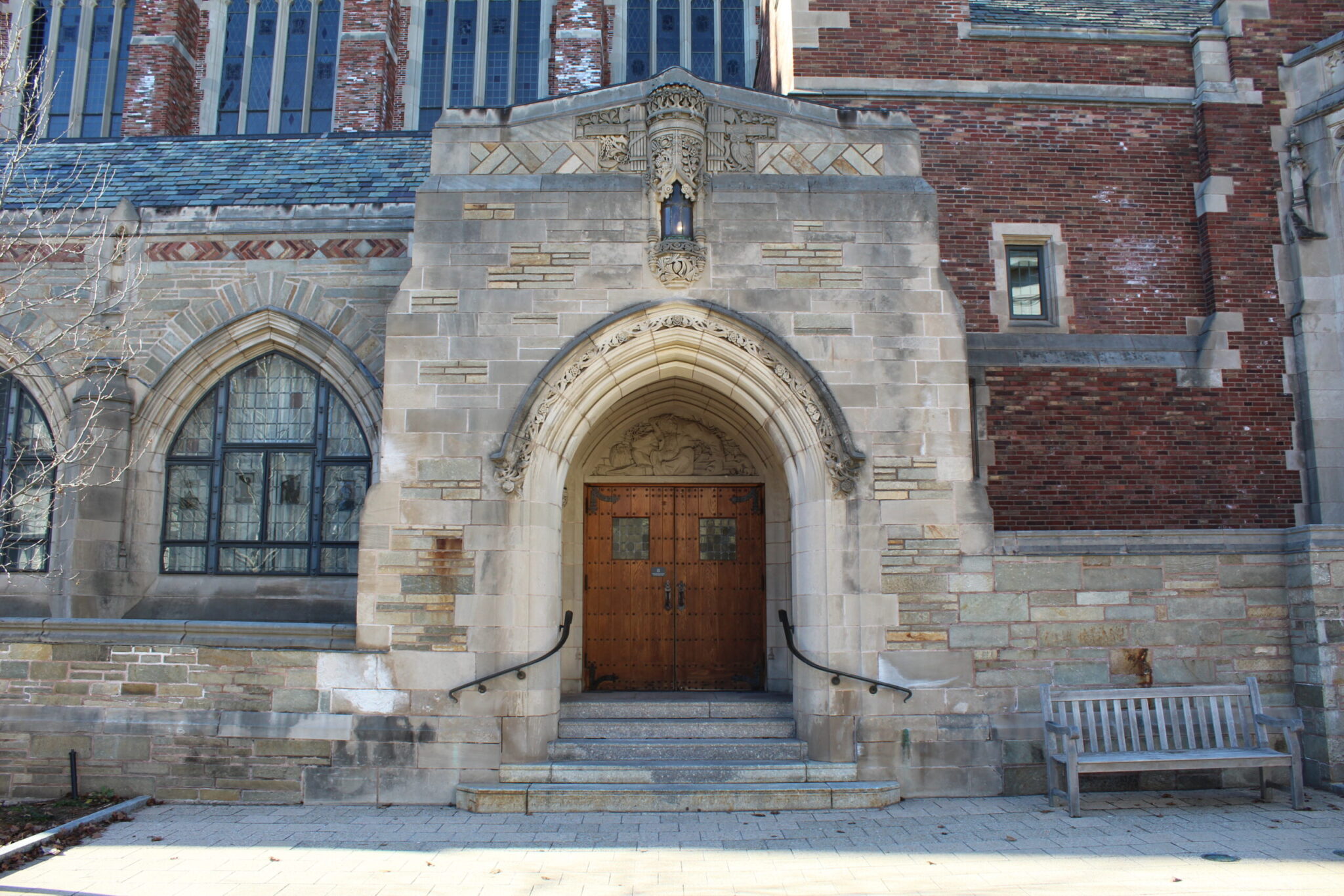Law School clinic’s discrimination case on behalf of Black veterans proceeds
Judge Stefan Underhill LAW ’84 permitted Monk v. United States — a case accusing the Department of Veteran Affairs of racial discrimination against Black veterans — to proceed, marking a rare instance in which a case seeking to redress historical discrimination overcame a motion to dismiss.

Paul-Alexander Lejas, Staff Photographer
A Federal District Court judge in Connecticut issued a landmark decision on March 29, permitting a case alleging racial discrimination against Black veterans by the United States Department of Veteran Affairs to move forward.
The case, Monk v. United States, seeks to address racial discrimination and persistent bias against Black veterans in housing, education and disability benefits, tracing back to the inception of 1945’s postwar G.I. Bill. This military benefit, administered by the VA, assists veterans and their dependents in covering expenses for programs like college, graduate school and other training programs. Yale Law School’s Veterans Legal Services Clinic and the Chicago-based law firm Edelson PC are representing the petitioners in this case.
“Black veterans should never have to fight systemic unfairness and racial discrimination in the VA, much less in 2024,” said Theo Benjamin, an attorney at Edelson PC. “But this ruling is an important step toward ending those harms.”
The case was brought forward by Conley Monk Jr., a Black U.S. Marine who served during the Vietnam War, on behalf of the National Veterans Council for Legal Redress. Monk alleges that upon returning from the war, he was consistently denied access to his entitled veterans benefits in housing, education and disability.
Despite suffering a stroke in 2010, Monk’s attempts to apply for veterans disability benefits were rejected, and subsequent efforts in 2012 faced the same outcome. Monk contends that these experiences inflicted upon him “dignitary, emotional, and psychological harm.” Furthermore, he alleges that his father, a World War II veteran, encountered similar hurdles in accessing veterans’ benefits in the decades following his service.
In his 25-page opinion, Judge Stefan Underhill LAW ’84 rejected the government’s motion to dismiss the case, arguing that the court lacked the jurisdiction to hear it. The court determined that the allegations of ongoing and systemic racial discrimination warranted the advancement of the case. With its ruling, Monk v. United States stands out as one of the rare instances in U.S. history in which a case seeking to redress historic discrimination has successfully overcome a motion to dismiss.
“The risk of harm that veterans would be denied benefits in a racially discriminatory manner was reasonably foreseeable to the VA,” the decision reads. “The VA should have known as early as the 1970s that Black veterans were at a greater risk of benefits denials than white veterans. Two studies found Black servicemembers were substantially likelier to face disciplinary action and an unfavorable discharge classification.”
In an email to the News, Gary Kunich, a public affairs specialist for the VA who sent a statement on behalf of VA Press Secretary Terrence Hayes, declined to comment on the lawsuit. Hayes said in the statement that the VA “doesn’t comment on potential and pending litigation.”
In the statement, Hayes wrote that the VA “will not rest until every Black veteran — and every veteran — gets the benefits they deserve at the VA.”
“Our mission at VA is to provide Veterans with the health care and benefits that they’ve earned,” the statement reads. “That is why we have set up a new Agency Equity Team and the new Equity Assurance Office at VA: to identify any differences in VA health care and benefits, understand them, and eliminate them.”
However, other experts and advocates still take issue with the VA’s alleged bias and discrimination in providing Black veterans their benefits.
Richard Brookshire, chief executive officer and co-founder of the Black Veterans Project, said that there have been billions in economic loss to Black veterans due to the VA’s alleged neglect and that the court’s ruling denying the VA’s motion to dismiss is a “historic step toward justice.”
“Monk v. United States is the most important legal case reckoning with the legacy of racial discrimination against Black veterans in our nation’s history,” said Brookshire. “Since its inception, the Department of Veterans Affairs has designed and implemented its benefits programs to reinforce our nation’s racial caste system – neglecting its moral, ethical and legal responsibility to intervene to ensure racism was not a barrier to accessing home loans, education benefits and disability compensation.”
Jared Hirschfield LAW ’25, a member of the VLS clinic who worked on the case, told the News that Monk, his brother Garry Monk and Brookshire deserve “tremendous” credit for their strategic vision in building and litigating this case.
He added that it was a privilege for himself and his law school colleagues to work alongside them in this “historic case for racial justice.”
“Judge Underhill’s decision is a huge win for our clients — Conley Monk Jr. and the National Veterans Council for Legal Redress — and for Black veterans nationwide,” Hirschfield wrote to the News. “For the first time ever, a federal court concluded that Plaintiffs sufficiently alleged that VA knew or should have known about racial disparities in its disability benefits program going back decades — disparities many Black veterans have long suspected.”
The National Veterans Council for Legal Redress is located at 197 Dixwell Ave.







